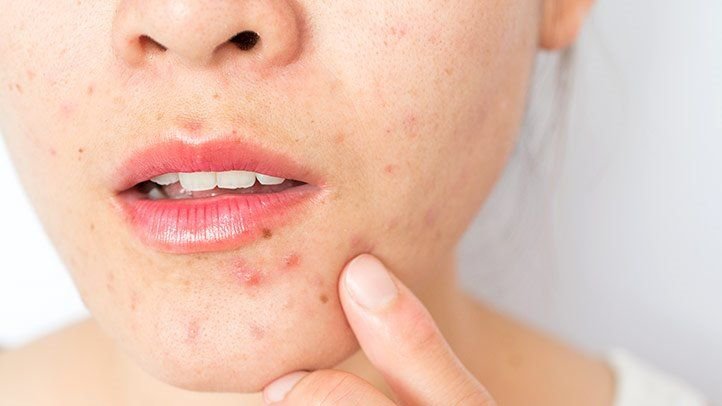Can’t Face Your Face? 5 Acne-Fighting Approaches That Can Help

Acne-Fighting
Everyone wants flawless skin. And while actors and models make it seem easy to achieve, clear skin doesn’t happen overnight. That’s because there are a lot of different things that can irritate the skin and cause acne. From genetics to environmental factors, having healthy skin takes time and the right skincare regimen. But it’s not impossible.
In this article, we share a few tips to help you combat acne-prone skin. From making sure you moisturize to routinely cleaning your towels, here are five steps to help you achieve the skin of your dreams:
1. Try Medicated Treatment
Have you been struggling with acne despite your best efforts? If so, it might be time to consider acne prescription medication. The truth is, acne is stubborn and over-the-counter medication might not be powerful enough to clear your skin. That doesn’t mean your skin is helpless. It just means you may need to be prescribed a more effective treatment, like a retinoid, birth control, or antibiotic.
Retinoids are a general term for vitamin A compounds. They offer several benefits, like helping reduce inflammation, unclogging pores, and regulating the growth of new skin cells. Simply put, retinoids can help fight against acne.
Birth control is another common acne treatment that lowers the number of androgens — a hormone that can cause acne — in your body to help you achieve clear skin. Antibiotics, like birth control, fight against acne from the inside. However, antibiotics work differently by eliminating acne-causing bacteria in your body.
2. Hydrate Your Skin
Some people aren’t aware of everything their skin goes through on a daily basis. Think about it for a second. Every day, your skin is exposed to dirt, bacteria, pollutants, and harmful UV rays. That’s why applying a moisturizer is so important.
Moisturizers act as a physical barrier to your skin, repairing your skin’s natural moisture from harmful environmental factors. It improves hydration and helps plump the skin, so it appears clean and fresh.
If you don’t already use a moisturizer, it’s time to introduce one to your skincare regimen. This is especially true if you have acne. When your skin is dry and dehydrated, your body produces more oil. This extra oil can clog your pores, leading to breakouts. So, make sure a hydrating moisturizer is a part of your routine.
With that said, you want to make sure you’re applying the right moisturizer to your skin. For example, if you’re prone to pimples, look for moisturizers labeled as “non-comedogenic.” This means they won’t clog your pores, so you shouldn’t experience acne.
3. Use Acne-Fighting Ingredients
If you have acne-prone skin, it’s important you’re cautious of what products you’re using. Some skincare ingredients are ideal for those with acne, while others can cause more damage. For example, salicylic acid is considered an acne-fighting ingredient because it reduces inflammation and irritation.
On the other hand, you should steer clear of products with fragrances, commonly labeled as parfum. While these products smell good, they can irritate your skin and cause breakouts.
Take a minute to review the ingredients in your skincare products. If you’re unfamiliar with an ingredient, google it to see if it’s beneficial for your skin type. If it isn’t, don’t be afraid to make changes. While introducing new skincare products can be scary, it’s better to use products that work than ones that don’t.
Keep in mind that it can take anywhere between four to six weeks to see results from skincare products. Don’t panic if your skin doesn’t clear up immediately after introducing something new.
4. Change Your Towels & Sheets
When was the last time you cleaned your washcloth? What about your pillowcase and sheets? You might not realize it, but your go-to face towel is probably littered with bacteria — especially if you use it to wash your face on a regular basis.
The same goes for your pillowcase and sheets. It’s all too easy for bacteria, dirt, and sweat to build up over time and cause breakouts on your skin. That’s why it’s important to regularly wash your towels and sheets.
This doesn’t mean you should need to wash your towels and sheets every single day. But, you should definitely clean them on a weekly basis. And be sure to use hot water and a dermatologist-approved laundry detergent.
Not many people realize how harmful some detergents can be to their skin. A lot of products contain fragrances and ingredients that can actually clog your pores and lead to breakouts. Do your best to find gentle and clean detergent brands like All Free & Clear and Tide Gentle & Free.
5. Don’t Touch Your Face
How often do you touch your face? Chances are that it’s too often to count. For many people, touching their face is a habit. Maybe you rest your hand on your chin when you’re thinking or rub your eyebrows when you’re stressed. While these gestures might not seem like a big deal, if your hands aren’t clean, you’re unconsciously transferring bacteria to your skin.
To keep this from happening, try to become more self-aware of how often you’re touching your face so you can do your best to stop. Something else you should keep away from your face is your cell phone. According to research, the average cell phone is dirtier than most toilet seats.
Think about that for a second. The last thing you want to do is transfer the dirt on your cell phone to your skin. Consider using Bluetooth devices when talking on the phone, like headphones or AirPods. This way, you won’t constantly be resting your dirty phone on your cheek, and potentially causing breakouts.
Achieving flawless skin takes effort, and sometimes, adopting new habits. The tips above might seem small, but integrating them can have a huge impact on your skin.




